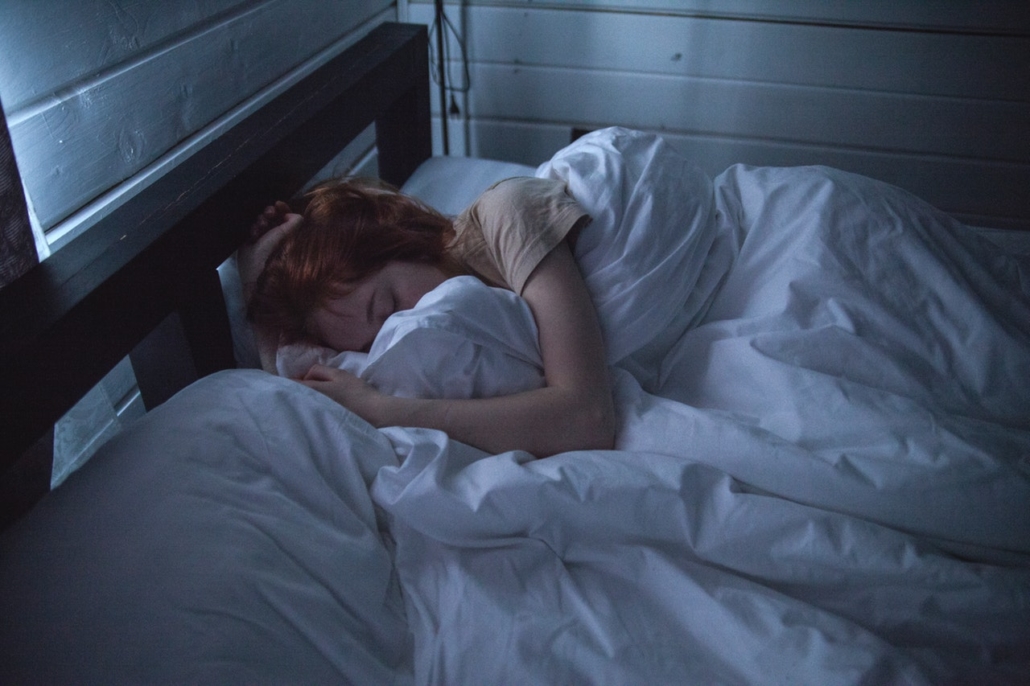OCD Therapy
Obsessive-Compulsive Disorder (OCD) is a common, chronic, and long-lasting disorder in which a person has uncontrollable, reoccurring thoughts (obsessions) and/or behaviors (compulsions) that he or she feels the urge to repeat over and over.
OCD is typically treated with medication, psychotherapy, or a combination of the two. Although most patients with OCD respond to treatment, some patients continue to experience symptoms.
Sometimes people with OCD also have other mental disorders, such as anxiety, depression, and body dysmorphic disorder, a disorder in which someone mistakenly believes that a part of their body is abnormal. It is important to consider these other disorders when making decisions about treatment. [1]
Signs and Symptoms of OCD
People with OCD may have symptoms of obsessions, compulsions, or both. These symptoms can interfere with all aspects of life, such as work, school, and personal relationships.
Obsessions are repeated thoughts, urges, or mental images that cause anxiety. Common symptoms include:
- Fear of germs or contamination
- Unwanted forbidden or taboo thoughts involving sex, religion, or harm
- Aggressive thoughts towards others or self
- Having things symmetrical or in a perfect order
Compulsions are repetitive behaviors that a person with OCD feels the urge to do in response to an obsessive thought. Common compulsions include:

- Excessive cleaning and/or handwashing
- Ordering and arranging things in a particular, precise way
- Repeatedly checking on things, such as repeatedly checking to see if the door is locked or that the oven is off
- Compulsive counting
Not all rituals or habits are compulsions. Everyone double checks things sometimes. But a person with OCD generally:
- Can’t control his or her thoughts or behaviors, even when those thoughts or behaviors are recognized as excessive
- Spends at least 1 hour a day on these thoughts or behaviors
- Doesn’t get pleasure when performing the behaviors or rituals, but may feel brief relief from the anxiety the thoughts cause
- Experiences significant problems in their daily life due to these thoughts or behaviors
Some individuals with OCD also have a tic disorder. Motor tics are sudden, brief, repetitive movements, such as eye blinking and other eye movements, facial grimacing, shoulder shrugging, and head or shoulder jerking. Common vocal tics include repetitive throat-clearing, sniffing, or grunting sounds.
How is OCD Treated?
There are effective treatments for OCD. The right approach depends on the person’s set of symptoms and the extent that they affect the person’s life and well-being. Some effective options include:
Inpatient Treatment for OCD
An inpatient setting has therapy and support staff available both day and night, whereas a residential setting has nursing staff during the day only. According to the National Institute for Health and Clinical Excellence [NICE] (2005) guidelines’, inpatient or residential treatment may be beneficial when there is extreme distress or functional impairment, the risk to life, severe self-neglect, or where a patient has comorbid disorders that make outpatient treatment more complex. [2]
Inpatient services may also be required when the response to previous OCD treatment was poor and the patient needs more intensive CBT or more assisted exposure than what is possible to deliver in an outpatient setting.
Benefits of Inpatient
It is important to carefully assess if inpatient treatment is necessary for yourself or a loved one and if it is the best option under the circumstances.
If you are contemplating inpatient rehabilitation as an option for yourself, it can reduce the stress of daily responsibilities for a brief period of time, which allows you to concentrate on recovery from a mental health crisis. As your crisis lessens, and you are better able to care for yourself, you can begin planning for your discharge. In-patient care is not designed to keep you confined indefinitely; the goal is to maximize independent living by using the appropriate level of care for your specific illness.

Therapies and Treatment
These methods of OCD therapy take time, diligent practice, and patience, as well as integrating relaxation skills prior to beginning. Also extremely critical to success is the support and positive reinforcement of family.
Psychotherapy
Psychotherapy can be an effective treatment for adults and children with OCD. Research shows that certain types of psychotherapy, including cognitive behavior therapy (CBT) and other related therapies (e.g., habit reversal training) can be as effective as medication for many individuals. Research also shows that a type of CBT called Exposure and Response Prevention (EX/RP) – spending time in the very situation that triggers compulsions (e.g. touching dirty objects) but then being prevented from undertaking the usual resulting compulsion (e.g. handwashing) – is effective in reducing compulsive behaviors in OCD, even in people who did not respond well to SRI medication.
As with most mental disorders, treatment is usually personalized and might begin with either medication or psychotherapy, or with a combination of both. For many patients, EX/RP is the add-on treatment of choice when SRIs or SSRIs medication does not effectively treat OCD symptoms or vice versa for individuals who begin treatment with psychotherapy. [3]
Medications
Serotonin reuptake inhibitors (SRIs), which include selective serotonin reuptake inhibitors (SSRIs) are used to help reduce OCD symptoms.
SRIs often require higher daily doses in the treatment of OCD than depression and may take 8 to 12 weeks to start working, but some patients experience more rapid improvement.
If symptoms do not improve with these types of medications, research shows that some patients may respond well to antipsychotic medication. Although research shows that an antipsychotic medication may help manage symptoms for people who have both OCD and a tic disorder, research on the effectiveness of antipsychotics to treat OCD is mixed.
Behavioral Therapy
Although there are a variety of behavioral therapies for treating OCD, most of these focus on exposing you to those things that you fear most. This exposure provides you with an opportunity to gain new information in hopes of disconfirming your worst fears.
Exposure and Response Prevention
One of the most popular and effective forms of behavioral therapy for OCD is exposure and response prevention (ERP). ERP involves exposing you to the anxiety that is provoked by your obsessions and then preventing the use of rituals to reduce your anxiety. This cycle of exposure and response prevention is repeated until you are no longer troubled by your obsessions and/or compulsions.

Cognitive Therapy
Cognitive-behavioral therapy is a treatment for OCD that uses two scientifically-based techniques to change a person’s behavior and thoughts: exposure and response prevention (ERP) and cognitive therapy. CBT is conducted by a cognitive-behavioral therapist who has special training in treating OCD.
Most CBT treatment is conducted at a therapist’s office once a week with exercises to practice at home between sessions. If your OCD is very severe, you might need more frequent sessions. Not all mental health professionals are trained in ERP therapy, so it’s important to find one who is.
One key to knowing whether you have found an appropriate ERP therapist is if the therapist encourages you to engage in exposure exercises during your sessions in the office. This helps you engage in more exposures outside of the office. Simply speaking about doing them in the office is less effective than getting started with the actual exposures. The ultimate goal of therapy is to translate exposure to the real world, where you can resist your compulsions and where you can embrace uncertainty rather than fear it. [4]
OCD Group Therapy
The effectiveness of group versus individual CBT for OCD has been the subject of much scientific investigation. Overall, clinical research suggests that group CBT for OCD is just as effective as individual CBT for the treatment of OCD symptoms in both adults and adolescents.
One study, for example, found that group behavioral therapy was effective for people with OCD and that people continued to show improvements at three and 12-month follow-ups. [5]

OCD Therapy Near You
It is possible to treat some causes of intrusive thoughts. Some people will overcome OCD or PTSD, but it can take time. Others may continue to experience symptoms but be able to manage them through treatment.
For some people, intrusive thoughts may persist for a long time. It is possible to learn to live with these thoughts and not let them affect daily life.
Many people will experience some unwanted and sudden thoughts, and it is usually not necessary to see a doctor or therapist.
However, anyone who experiences intrusive thoughts that cause regular or severe distress should see a doctor or therapist. These professionals can help the person understand what is causing the thoughts and how to treat them.
Contact us today here at We Level Up Mental Health Treatment Center for treatment plans that could work best for you, and to know the process of getting into OCD therapy.
Sources:
[1-3] Obsessive-Compulsive Disorder – U.S. Department of Health and Human Services National Institutes of Health
[2] Three-Week Inpatient Treatment of Obsessive-Compulsive Disorder: A 6-Month Follow-Up Study – National Center for Biotechnology Information, U.S. National Library of Medicine
[4] Treatments for OCD – https://adaa.org/understanding-anxiety/obsessive-compulsive-disorder-ocd/treatments-for-ocd
[5] Håland AT, Vogel PA, Lie B, Launes G, Pripp AH, Himle JA. Behavioural group therapy for obsessive-compulsive disorder in Norway. An open community-based trial. Behav Res Ther. 2010;48(6):547-54. doi:10.1016/j.brat.2010.03.005.